The Tragically Hip, a band synonymous with the Canadian identity, carved a unique space in the music world over their remarkable 32-year career. Through 14 studio albums and millions of records sold, Gord Downie’s poignant lyrics and the band’s evocative soundscapes resonated deeply with a nation. Their music became a soundtrack to the Canadian experience, weaving in national narratives and exploring the nuances of being Canadian. As Dallas Green of City and Colour aptly put it, “If you’re a musician and you’re born in Canada it’s in your DNA to like the Tragically Hip.”
Therefore, it was no surprise that the announcement of Gord Downie’s terminal brain cancer diagnosis in May sent waves of grief across Canada. Prime Minister Justin Trudeau acknowledged Downie’s profound impact, stating, “His status as an extraordinary Canadian creative force and icon is not to be understated.”
In a testament to their enduring bond with fans, the band embarked on one final tour, a collective goodbye. Following the release of their album, Man Machine Poem, they played across Canada culminating in a final, nationally televised and live-streamed concert in their hometown of Kingston on August 20th. It was a moment for Canada to collectively honour a band that had shaped their cultural landscape, led by a poet who had instilled national pride and a deep appreciation for music. As a tribute to The Tragically Hip’s legacy, we delve into 10 essential songs that encapsulate their profound impact.
“Highway Girl” (1987)
The journey of The Tragically Hip began in Kingston, Ontario in 1984. Honing their craft in local venues, they eventually caught the attention of Bruce Dickinson, then-president of MCA Records, during a performance at Toronto’s legendary Horseshoe Tavern in 1986. This pivotal moment led to their self-titled debut LP in 1987, featuring the single “Highway Girl.” While the original version showcased their raw energy, it was a 1991 live rendition that truly captured the public’s imagination. This version incorporated a spoken-word interlude, a fictional and darkly humorous rant about a double suicide, which surprisingly became a radio hit, demonstrating Downie’s burgeoning talent for spoken-word performance and ad-libbed storytelling that would become a hallmark of their live shows and many future hits.
“New Orleans Is Sinking” (1989)
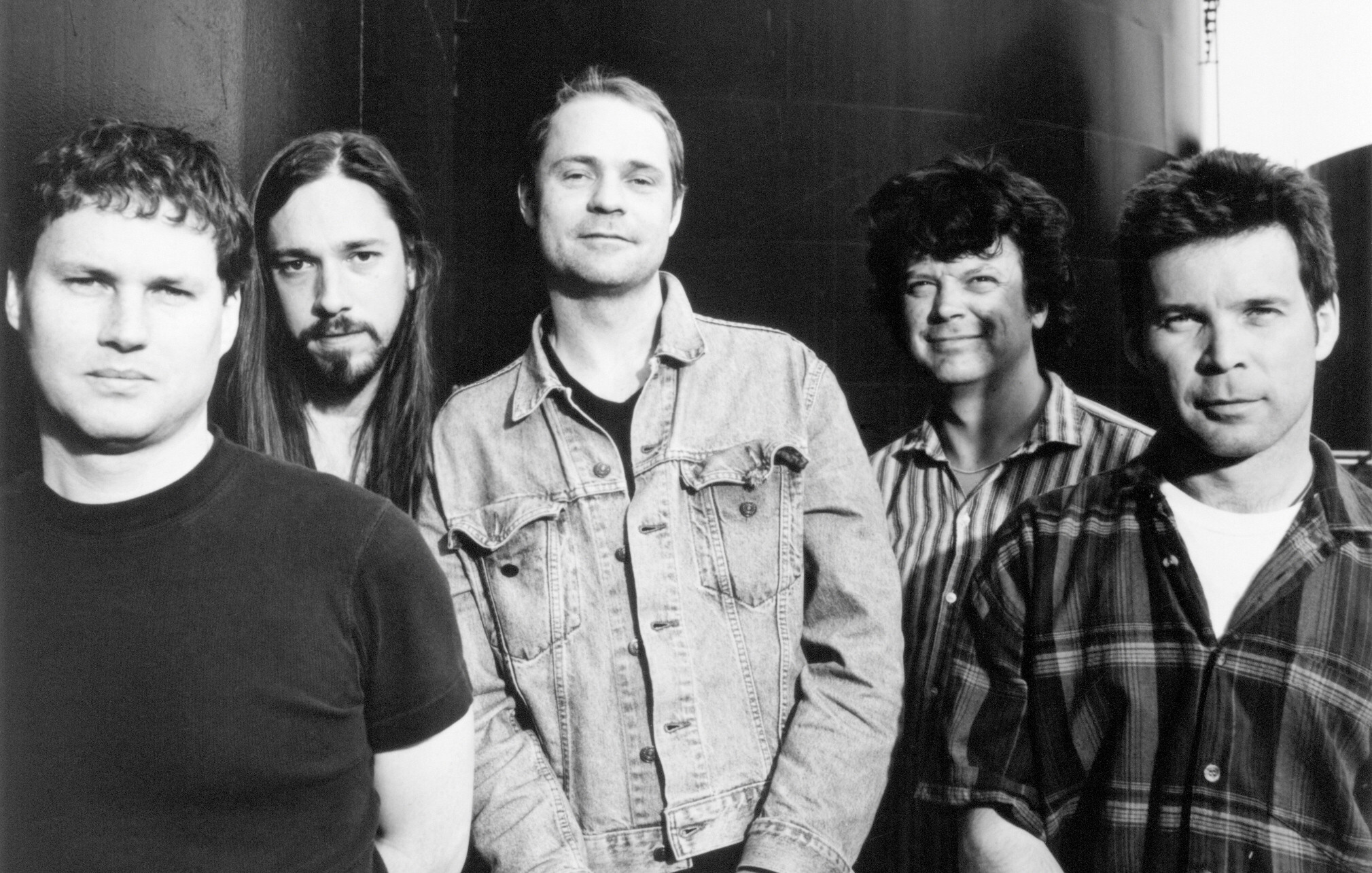 The Tragically Hip performing New Orleans Is Sinking
The Tragically Hip performing New Orleans Is Sinking
Their sophomore album, Up to Here (1989), proved to be a breakthrough, unleashing a string of Canadian rock anthems including “Blow at High Dough,” “38 Years Old,” and “Boots or Hearts.” Among these hits emerged “New Orleans Is Sinking,” which became one of the band’s most iconic songs and a live performance staple. In concert, Downie would frequently improvise within the song’s instrumental breaks, weaving in spontaneous stories and even testing out ideas that would later evolve into other Tragically Hip Songs like “Nautical Disaster” and “Ahead by a Century.” The most widely circulated version of “New Orleans Is Sinking” features a particularly memorable, bizarre tale of Downie’s supposed summer job cleaning a killer whale tank at an aquarium. This version gained such popularity that it was released as a B-side. Years later, in the aftermath of Hurricane Katrina’s devastation of New Orleans, many Canadian radio stations temporarily removed the song from rotation out of sensitivity to the tragedy and its victims.
“Fiddler’s Green” (1991)
Continuing their musical evolution, The Tragically Hip’s 1991 album Road Apples further solidified their blues-infused rock sound. The album title itself has an interesting backstory, as shared by guitarist Rob Baker in a 1991 interview. After the band’s initial album title suggestions were deemed too obscure by their label, they jokingly proposed Road Apples, a slang term for horse manure. Amusingly, the Los Angeles-based label executives were unfamiliar with the term and misinterpreted it as “songs written on the road,” embracing it enthusiastically. Amidst the album’s rock energy, “Fiddler’s Green” stood out as a deeply personal and poignant ballad. Downie penned this emotionally resonant song in memory of his young nephew, Charles Gillespie, who tragically passed away from a heart condition before the song’s recording. Remarkably, despite its emotional weight, “Fiddler’s Green” was not performed live by the band for 15 years, remaining unplayed until 2006, highlighting its deeply personal nature.
“Fifty Mission Cap” (1992)
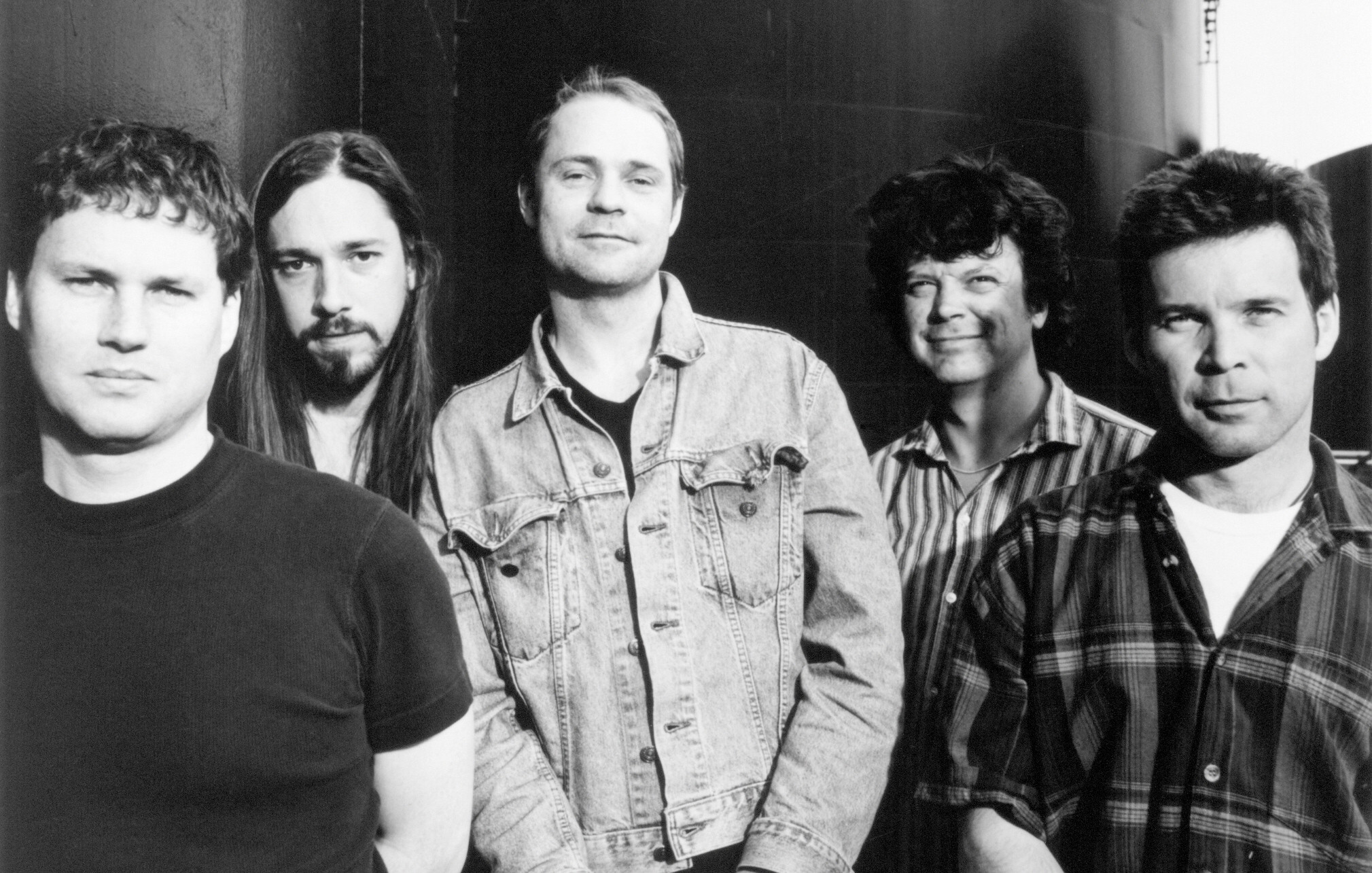 The Tragically Hip performing Fifty Mission Cap
The Tragically Hip performing Fifty Mission Cap
Fully Completely, released in 1992, is widely regarded as the album that cemented The Tragically Hip’s iconic status within Canadian music history and showcased the profound depth of Gord Downie’s lyrical storytelling. The album achieved diamond certification in Canada, selling over a million copies, and the songs from Fully Completely remain among the band’s most beloved. “Fifty Mission Cap” exemplifies Downie’s narrative prowess, recounting the story of Toronto Maple Leaf hockey player Bill Barilko. Barilko scored the Stanley Cup-winning goal in 1951, only to disappear months later when his plane crashed in the wilderness of Northern Ontario. His body remained missing for 11 years, a period that eerily mirrored the Toronto Maple Leafs’ Stanley Cup drought of the same length. The song masterfully blends Canadian sports lore with a touch of the mysterious and melancholic.
“Wheat Kings” (1992)
Despite not being released as a single from Fully Completely, “Wheat Kings” has become an enduring fan favourite and a staple of Canadian culture. The song opens with the haunting call of a loon, immediately setting a distinctly Canadian atmosphere. Lyrically, “Wheat Kings” delves into the true and tragic story of David Milgaard, who was wrongfully convicted and imprisoned for 23 years for the murder of a young nurse in Saskatchewan. The song’s slow, mournful tempo and Downie’s evocative lyrics have made it a poignant anthem, frequently played around campfires across Canada. Despite the overt Canadian themes present throughout Fully Completely, MCA Records harboured hopes that the album would finally break The Tragically Hip in the United States. However, as bassist Gord Sinclair recounted in the book Have Not Been the Same: The Canrock Renaissance 1985-1995, initial label enthusiasm quickly faded after the album’s release, and American promotion was abruptly cut short.
“Grace, Too” (1994)
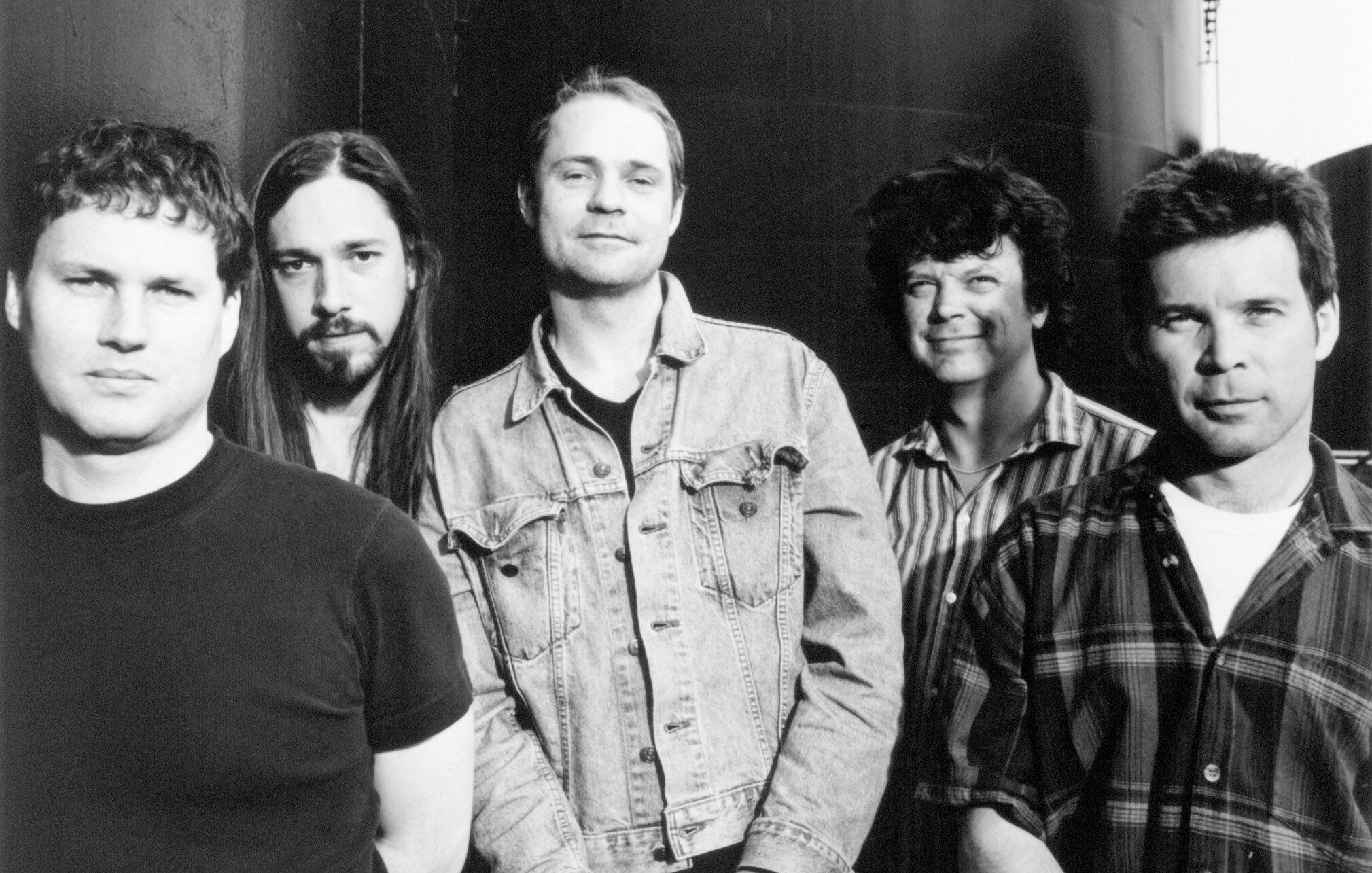 The Tragically Hip performing Grace Too
The Tragically Hip performing Grace Too
In March 1995, Dan Aykroyd, another proud son of Kingston, Ontario, introduced The Tragically Hip to a massive American audience on Saturday Night Live. Wearing a “Canada” t-shirt, Aykroyd declared, “It is my honor to introduce to America my friends the Tragically Hip.” The song they performed was “Grace, Too,” from their album Day for Night. This era marked a shift towards a deeper, darker, and more introspective sound for the band. “Nautical Disaster,” also performed on SNL that night, further showcased this evolution and contributed to Day for Night becoming their first album to debut at Number One on the Canadian Albums Chart. The SNL performance offered Americans a glimpse into the band’s captivating live presence, particularly Gord Downie’s unique and expressive stage persona. Downie himself described his performance style to MacLean’s Magazine in 2009 as a form of surrender, explaining, “I throw myself on the altar of song and I see my own personal musical life in fast flashes of faces and names and colors and sounds and I get lost in the euphoria of standing up there.”
“Ahead by a Century” (1996)
Trouble at the Henhouse, released in 1996, continued the band’s streak of Canadian chart-topping success, debuting at Number One and remaining there for four weeks. “Ahead by a Century” stands as The Tragically Hip’s highest-charting single to date and has become one of their most beloved and recognizable songs. Intriguingly, some of its lyrics were even inscribed on the custom-made boots Gord Downie wore during their final 2016 tour, demonstrating the song’s personal significance. 1996 was a significant year for the band, marked by performances for nearly half a million fans during their Another Roadside Attraction tour and opening slots for major international acts. Reflecting on this period, Gord Downie told The Hamilton Spectator, “I liked it and I didn’t like it, to be honest. I definitely found it amusing that within the space of a month we opened up for the Led Zeppelin guys and the [Rolling] Stones. After doing the Stones, I couldn’t help but think it was very fateful somehow – that some Jedi Master somewhere had decided that we needed this as the next stage in our education.”
“Bobcaygeon” (1998)
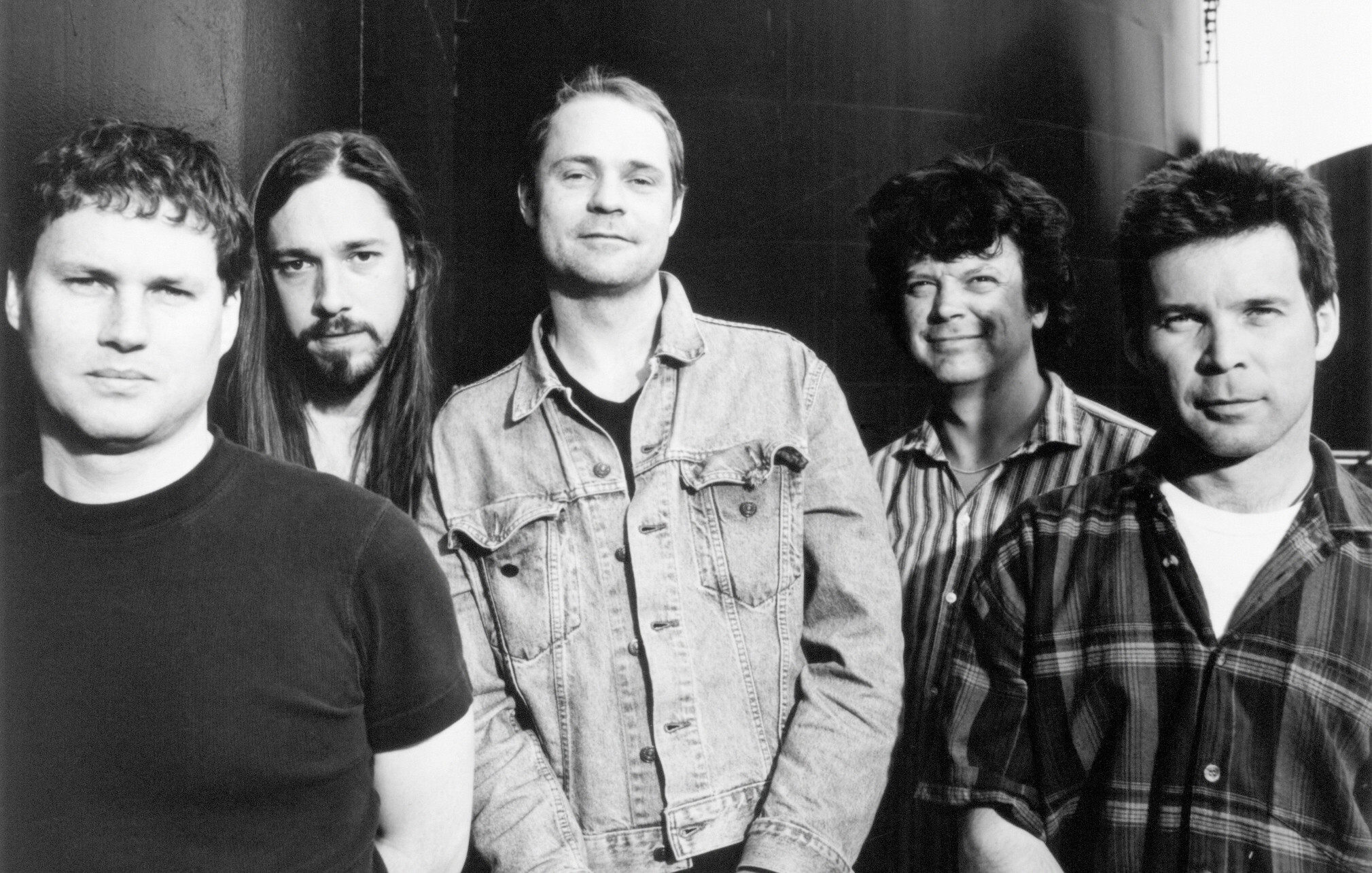 The Tragically Hip performing Bobcaygeon
The Tragically Hip performing Bobcaygeon
“Bobcaygeon,” from the 1998 album Phantom Power, takes its name from the tranquil cottage town of Bobcaygeon in Ontario’s Kawartha Lakes region, a quintessential Canadian summer destination. The song evokes the essence of Canadian summers and has become a quintessential summer anthem in Canada, instantly recognizable and infectious. However, beneath its catchy melody, “Bobcaygeon” subtly touches upon deeper social commentary, referencing the Christie Pits riot in Toronto in 1933, a clash between members of Toronto’s Jewish community and antisemitic groups. The lyrics, “That night in Toronto with its checkerboard floors/Riding on horseback and keeping order restored/Til the men they couldn’t hang/Stepped to the mic and sang/And their voices rang with that Aryan twang,” reveal a layer of social awareness within the seemingly lighthearted tune, a testament to Downie’s ability to weave complex themes into accessible music.
“My Music at Work” (2000)
Following consistent Canadian success with each album release, The Tragically Hip sought a different creative approach for their next project. Their initial concept was to write collaboratively in a private train car while traveling across North America. Although this ambitious plan was ultimately abandoned, it led to the album Music @ Work, which featured the single “My Music at Work.” While the single achieved moderate success in Canada, Downie later reflected on Music @ Work as a “generally misunderstood album that you love just the same as your other records,” suggesting a deeper appreciation for the album within the band despite its more subdued commercial reception.
“Machine” (2016)
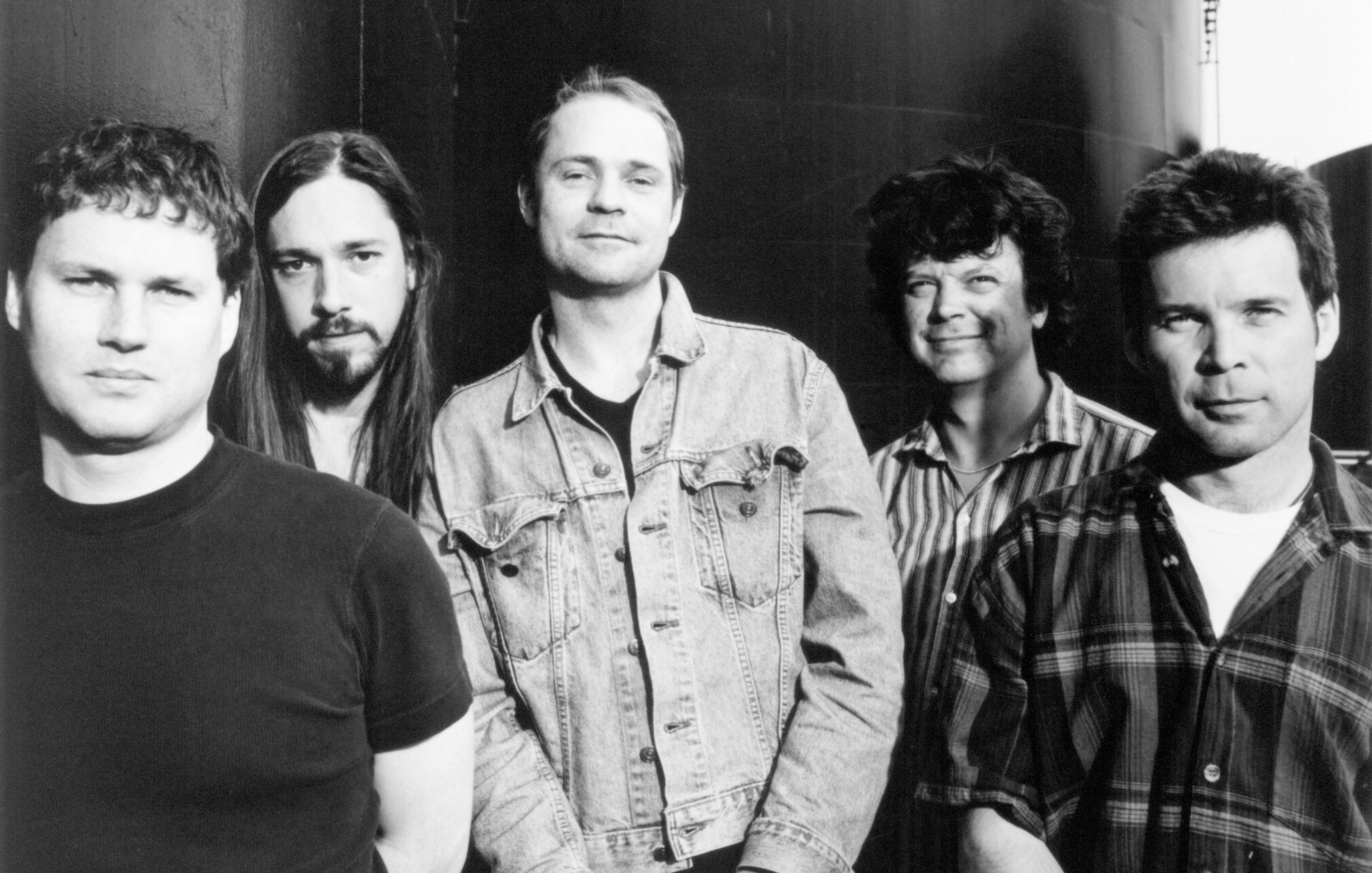 The Tragically Hip performing Machine
The Tragically Hip performing Machine
Man Machine Poem, released in 2016, stands as The Tragically Hip’s final studio album. Recorded prior to Gord Downie’s cancer diagnosis and produced by Kevin Drew and Dave Hamelin, it draws its title from a track on their previous album, Now for Plan A. Throughout their farewell tour, the setlists varied each night, but “Machine,” the closing track from Man Machine Poem, emerged as a frequent and poignant inclusion. “Machine” serves as a beautiful showcase for Downie’s poetic lyricism and a fitting summation of his artistic mission throughout his career. Lines like “I write about words/I find treasure or worse /I watch the end of man/And I dream like a bird” encapsulate his dedication to language, his exploration of human experience, and his enduring artistic spirit. “Machine” became a powerful and emotional closing statement for a band that had profoundly shaped Canadian music and culture.

